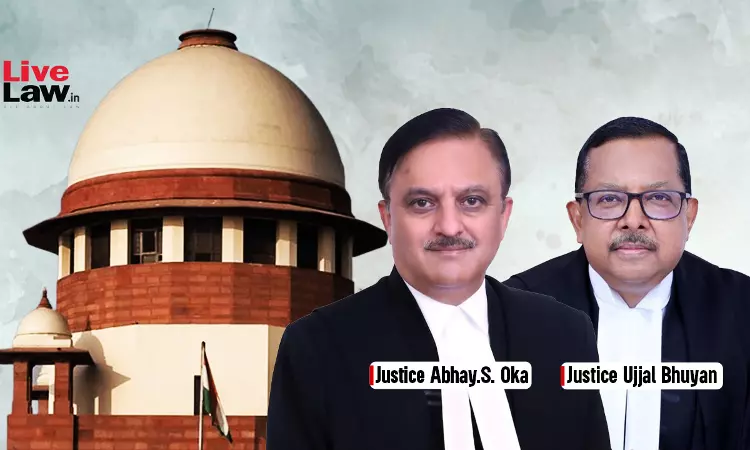- Home
- /
- Top Stories
- /
- Retired Judges' Medical...
Retired Judges' Medical Reimbursement To Be Borne By State Of First Appointment Or Retirement : Supreme Court
Amisha Shrivastava
24 April 2025 7:19 PM IST
The Supreme Court recently (April 15) cautioned State Governments that non-compliance with its orders on medical facilities for retired High Court Judges, their spouses, and other dependants could invite action under the Contempt of Courts Act, 1981. “We are putting the State to the notice that if we find non-compliance, action under the Contempt of Courts Act, 1981 will be initiated”,...
The Supreme Court recently (April 15) cautioned State Governments that non-compliance with its orders on medical facilities for retired High Court Judges, their spouses, and other dependants could invite action under the Contempt of Courts Act, 1981.
“We are putting the State to the notice that if we find non-compliance, action under the Contempt of Courts Act, 1981 will be initiated”, the Court stated.
The facilities include medical benefits at par with sitting Judges, reimbursement for treatment in private hospitals without prior State approval, sanctioning authority vested in the Registrar General of the High Court, reimbursement for treatment taken in another State, and a cashless treatment facility.
A bench of Justice Abhay S. Oka and Justice Ujjal Bhuyan directed States to file fresh affidavits and kept the matter on April 29, 2025, at 2.00 p.m.
Paragraph 9 of its previous order dated February 18, 2025 stated that all reimbursements regarding retirement benefits as directed under court orders in the present case shall be made by the concerned State Governments, meaning the State where the seat of the High Court is located from which the Judge has retired.
In the latest order, the Court addressed inconsistencies regarding which State Government bears the responsibility for reimbursement. It clarified that it could be either the State where the High Court from which the Judge retired is situated or the State of the Judge's first appointment, in cases involving transfer. The Court stated in its order –
“It is pointed out that there are cases of Judges who are appointed in one particular High Court but have retired as judges of some other High Court as they were transferred. Therefore, direction contained in paragraph 9 is clarified as under: “When we say the concerned State Government, it will be the State Government where the seat of the High Court is situated in which the retired Judge was firstly appointed or the State Government where the seat of the High Court is situated from which the learned Judge has retired.””
Background
On February 18, 2025, the Court criticised the State of Madhya Pradesh for its lack of compliance, particularly with the cashless facility. Although the State claimed it would take six months to implement the facility, the Court granted only one month and directed immediate amendment of the Government Order dated July 24, 2019. This order had limited reimbursement to emergency treatments only, contrary to the Court's earlier direction.
The Court also clarified that medical reimbursement in private hospitals could extend to non-empanelled hospitals in certain situations. Referring to a January 4, 2024 judgment in All India Judges Association v. Union of India, it held that in case of emergencies or unavailability of required treatment in empanelled hospitals near the Judge's residence, treatment in any nearby private hospital would qualify for reimbursement. Such reimbursement would be subject to post-facto approval by the Registrar General of the High Court from which the Judge retired.
The February 18 order also provided that states already providing better facilities than those mandated were not to scale them back.
The Court also highlighted its May 1, 2017 order on domestic help and telephone bill reimbursements. It directed that these benefits must also continue for the spouse after the Judge's death.
Registrar Generals of all High Courts were tasked with submitting reports on whether retired Judges are facing issues in receiving the mandated benefits. They were also told to pass on unresolved cases to the Law Secretaries of the respective States.
Earlier, the Court emphasised the goal of nationwide uniformity in post-retirement benefits for Judges.
Case no. – CONMT.PET.(C) No. 425-426/2015 In W.P.(C) No. 523/2002
Case Title – Justice V.S. Dave President, The Association Of Retd. Judges Of Supreme Court And High Courts v. Kusumjit Sidhu & Ors.
Citation : 2025 LiveLaw (SC0 470



